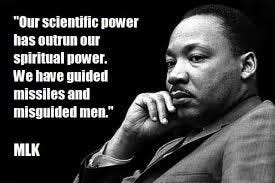Force Without Power
How America’s Strategic Misfire Is Explained by Newtonian Physics—and What It Means for Our Illiberal Drift.
By Dr. Isaiah (Ike) Wilson III, PhD
“Power is the rate at which work is performed over time.”
— Newton’s Power Equation (P = W / t)
There are seasons in the life of a republic when physics is more than metaphor. When motion, force, displacement, and time don’t just explain the world of objects—but the dynamics of power itself. America, at this moment, is in one of those seasons.
Once the liberal hegemon, architect of the postwar world order, the United States now drifts dangerously toward illiberal democratic rule—a strongman's republic clothed in the garments of electoral legitimacy.
To understand how we arrived here, we must go back—deep into the current of American Political Development. But we must also look sideways, to the laws of motion that govern all bodies, whether made of matter or men.
What if America’s strategic crisis could be understood—diagnosed and perhaps even corrected—through the lens of Newton’s Power Equation?
Part I: The Power Equation—More Than Physics
Newton’s equation is deceptively simple:
Power = Work / Time
In the realm of physics, it tells us how efficiently energy is applied over time to move an object. But applied to statecraft, it becomes something more profound:
Work becomes the effective use of diplomatic, economic, and military effort.
Time becomes the horizon across which strategic outcomes are measured.
Power becomes influence sustained over time—not just shock, not just awe.
And here lies the American tragedy: we have mistaken force for power. We have confused short-term dominance for long-term influence. We apply energy, yes—but inefficiently, without sustained direction or strategic patience. We thrash, we strike, we sanction, we bomb—but we fail to move.
In Newtonian terms: we are expending force without accomplishing work in a meaningful timeframe.
Part II: From Liberal Hegemon to Illiberal Operator
The United States did not always operate this way.
Throughout much of the 20th century, America wielded power with strategic endurance. The Marshall Plan. The Bretton Woods institutions. NATO. These were not acts of brute force—they were architecture. They took time. They required compromise. They built a world in which America’s strength was magnified, not by fear, but by trust.
But then came the post-9/11 world. A world of vengeance disguised as strategy. Of “preemptive defense.” Of surges and sanctions and regime change. America began to equate motion with progress. Action with power. Shock with work. We mistook the kinetic for the strategic. We moved fast—and nowhere.
And while we flailed outward, we began to decay inward.
Part III: Strategic Amnesia and the Cult of Force
The root of the problem is not just in tactics, but in mindset.
America suffers from strategic amnesia. We have forgotten that real power is about endurance, not display. That to shape global order, we must be willing to work across generations, not just election cycles.
This amnesia has led us to deploy force like a hammer looking for nails:
Tariffs against allies and adversaries alike.
Sanctions that isolate but fail to coerce.
Military interventions that win battles but lose legitimacy.
Diplomatic withdrawals that signal abandonment instead of resolve.
Each of these is a jolt of force. But in Newtonian terms, they achieve little displacement—they do not move America forward in the system of global relations. They burn energy. They change headlines. But they do not build power.
Part IV: Time—The Forgotten Variable
The most dangerous casualty in America’s strategic decline is time.
In the Power Equation, time is not optional. It is the denominator. Without it, power is undefined.
But we now govern in temporal panic. Policy is made for the next news cycle, not the next decade. Alliances are questioned not based on their long-term benefits, but on their short-term costs. We exit treaties, abandon partners, and shift strategies at a pace that makes sustainable power impossible.
Meanwhile, rivals like China and Russia understand time. They play the long game. They make incremental moves. They embed influence. They are building power by Newtonian law—slowly, methodically, effectively.
We, by contrast, are running out of time—because we no longer respect it.
Part V: The Inward Turn—Force Against the Republic Itself
When a great power can no longer move outward effectively, it often turns inward destructively.
That is what we are now witnessing: the application of state force—not to shape the world, but to control the citizen.
The politicization of the Department of Justice.
The erosion of electoral integrity.
The assault on the free press and public education.
The fusion of religious nationalism and state policy.
This is not conservative governance. This is not populism. This is illiberalism—force without legitimacy.
And Newton would warn: Every action has an equal and opposite reaction. The more force is used against the body politic, the more unstable that body becomes. Eventually, the system collapses under the weight of its own suppression.
The Abuse of Old Tools: Trump’s Alien Enemies Act Revival and Hegseth’s Merc-Force
History, when misremembered, returns not as lesson but as weapon.
President Trump’s second-term invocation—some might say resurrection—of the 1798 Alien Enemies Act is a case in point.
Once a Federalist-era tool of exclusion meant to silence dissent and consolidate executive power in the name of “national unity,” the Act has been refashioned under Trump II into a blunt cudgel: a pseudo-legal framework for mass surveillance, selective deportations, and targeted intimidation of dissenting diasporas.
Under the guise of “homeland integrity” and “cultural re-sovereigntization,” Trump’s White House has rendered citizenship conditional, and belonging subject to the executive’s arbitrary discretion.
This is not simply a policy misstep. It is a strategic affront to the American idea.
The Alien Enemies Act redux violates the core liberal tenet that power is bound by law—not license. It confuses the power to remove with the power to secure.
And like all such force-displacement errors, it eventually backfires. Communities that once viewed the U.S. as a beacon now view it as a threat. Strategic trust—essential for everything from alliance coordination to domestic legitimacy—is squandered in a spasm of performative authoritarianism.
Even more dangerously, it mirrors what Newton warned in his Third Law: “To every action, there is an equal and opposite reaction.”
The executive’s escalating use of force to control internal pluralism has met with a growing transnational pushback—from foreign media platforms, diaspora networks, and even allied democratic governments calling foul. The more America tries to contract its internal diversity through coercion, the more it risks external isolation.
And yet the institutional degradation doesn’t end with the presidency. It continues through the Pentagon—or what now passes for one.
Secretary of Defense Pete Hegseth, the former Fox News personality turned culture-warrior-in-chief, has presided over perhaps the most comprehensive ideological hollowing of the U.S. defense establishment in modern history. Under his watch, the Department of Defense is being regressed into a performative 'War Department'—not in the Jeffersonian sense of purpose-driven national defense, but in the Madison Avenue sense of a merchandised, combat-themed theater of rage and revenue.
What was once the world’s preeminent strategic apparatus—capable of both deterrence and diplomacy, crisis response and civil support—is becoming, under Hegseth, an ideological export shop. Military readiness reports have been swapped for press releases celebrating “anti-woke” purges. Training curricula once focused on joint-force interoperability now orbit the protection of “traditional warrior values,” a euphemism for political indoctrination. Defense contracting ballooning—not in pursuit of modernization, but in bolstering the equivalent of what promises to become private militias, legacy weapons, and profit-sharing arrangements with ideologically aligned firms.
This is not defense. It is performativity posing as preparedness.
And here, again, Newton's second law bears scrutiny: Force = mass × acceleration.
The problem with Hegseth’s “mass mobilization” of militarized cultural grievance is that it lacks any strategic vector. There is no direction. Only acceleration. Rage without aim. Deployments without doctrine. Alliances without credibility. What we have is a defense complex built for consumption, not for actual conflict—a glorified gladiator ring of loud uniforms, Instagrammable flyovers, and infotainment-sponsored “valor.”
In sum, the Trump-Hegseth partnership is marrying the alienation of dissent with the commodification of warfare. It will substitute real strategic power with forced ideological conformity and turn the world’s most sophisticated defense institution into a marketplace of militarized nostalgia.
This is not simply illiberalism. It is strategic rot.
And in a world of compound threats, this rot is the kind that spreads inward and outward—simultaneously eroding our ability to respond to external shocks and our internal resilience to withstand them.
Part VI: The Confusion of Motion for Meaning
America moves. That much is undeniable.
But it no longer displaces. It no longer progresses. It is caught in strategic Brownian motion—constant energy, no direction.
This is the fate of a hegemon who mistakes power for muscle. Who forgets that leadership is earned, not demanded. That displacement without purpose is just noise.
What we see now is not a strategic posture. It is a thrashing giant—limbs flailing, allies scattering, institutions buckling. Gulliver, undone not by enemies, but by his own misunderstanding of motion.
Part VII: Reclaiming Power—A Call for Strategic Recalibration
To recover, we must begin again.
We must reinvest in Work—measured, deliberate, values-driven action.
We must reclaim Time—as a strategic asset, not a political burden.
Only then can we rediscover Power—not as domination, but as enduring influence.
This means rebuilding alliances. It means committing to institutional integrity. It means governing with foresight. And yes—it means accepting the slow, often frustrating tempo of real progress.
Power is not declared. It is built. Over time. With work.
Epilogue: Newton’s Final Lesson
If Newton were alive today, he might warn us:
That force is easy.
That motion is seductive.
But that power—real power—is rare, and fragile.
And if we do not learn that lesson, we may yet be remembered not for the empire we built, but for the republic we let unravel—thrashing in place, mistaking energy for meaning, until it was too late.
🧠 Thanks for reading Compound Security, Unlocked.
If you found this essay insightful, consider subscribing, sharing, or joining the discussion below.
Power isn’t how loud you shout. It’s how long your voice echoes.
Get the book here!




